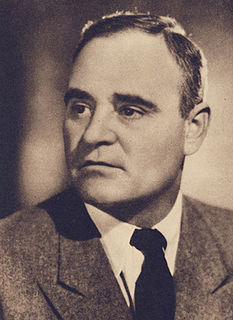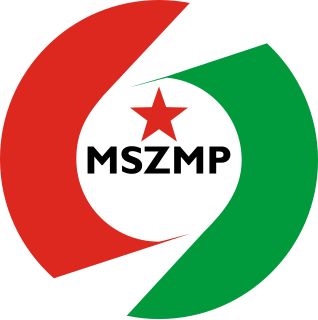
Parliamentary elections were held in Macedonia on 18 October 1998, with a second round on 1 November. VMRO-DPMNE emerged as the largest party, winning 49 of the 120 seats, and later formed a coalition government with Democratic Alternative and the Democratic Party of Albanians.

Parliamentary elections were held in Hungary on 9 April 2006, with a second round of voting in 110 of the 176 single-member constituencies on 23 April. The Hungarian Socialist Party emerged as the largest party in the National Assembly with 186 of the 386 seats, and continued the coalition government with the Alliance of Free Democrats. It marked the first time a government had been re-elected since the end of Communist rule.

Parliamentary elections were held in Russia on 12 December 1993. They included the last elections to the Federation Council of Russia.

Parliamentary elections were held in Hungary between 8 and 15 December 1926. The result was a victory for the Unity Party, which won 161 of the 245 seats in Parliament. István Bethlen remained Prime Minister.

Parliamentary elections were held in Hungary between 28 and 30 June 1931. The result was a victory for the Unity Party, which won 149 of the 245 seats in Parliament. István Bethlen remained Prime Minister, but resigned on 24 August due to the effects of the Great Depression and was replaced by Gyula Károlyi.

Parliamentary elections were held in Hungary between 31 March and 7 April 1935. The result was a victory for the Party of National Unity, which won 164 of the 245 seats in Parliament. Gyula Gömbös remained Prime Minister.

Parliamentary elections were held in Hungary on 28 and 29 May 1939. The result was a victory for the Party of Hungarian Life, which won 181 of the 260 seats in Parliament. Pál Teleki remained Prime Minister. It won 72 percent of the parliament's seats and won 49 percent of the popular vote in the election. This was a major breakthrough for the far-right in Hungary.

Parliamentary elections were held in Latvia on 7 and 8 October 1922. The Latvian Social Democratic Workers' Party remained the largest party, winning 30 of the 100 seats.

General elections were held in Liechtenstein on 11 March 1918, with a second round on 18 March. They were the first elections held in the country contested by political parties, as the Christian-Social People's Party and Progressive Citizens' Party had been founded that year. The Progressive Citizens' Party emerged as the largest in the Landtag, winning seven of the 12 elected seats.

General elections were held in Liechtenstein on 29 April 1945. Following the "silent elections" of 1939, they were the first to use the new proportional representation system. The Progressive Citizens' Party won eight of the 15 seats in the Landtag, but remained in coalition with the Patriotic Union.

General elections were held in Romania in June 1939. The Chamber of Deputies was elected on 1 June, whilst the Senate was elected a day later. They were the first since the introduction of the royal dictatorship of King Carol II under the 1938 constitution. Voters were presented with a single list from the National Renaissance Front, which had been the only legally permitted party in Romania since December.

Parliamentary elections were held in Romania on 5 March 1961. Voters were presented with a single list from the People's Democratic Front, which was dominated by the Romanian Workers Party. The Front won all 465 seats in the Great National Assembly.

Parliamentary elections were held in Romania on 7 March 1965. Voters were presented with a single list from the People's Democratic Front, which was dominated by the Romanian Workers Party. The Front won 465 seats in the Great National Assembly.

Parliamentary elections were held in Romania on 2 March 1969. The Front of Socialist Unity, which had been formed a year earlier to replace the People's Democratic Front, was the only organization that contested the election; no prospective candidate could run for office without the Front's approval. Like the People's Democratic Front, the Front of Socialist Unity was dominated by the Romanian Communist Party. The Front won all 465 seats in the Great National Assembly.

Parliamentary elections were held in Romania on 9 March 1975. The Front of Socialist Unity, dominated by the Romanian Communist Party and including other mass organisations, was the only organisation that contested the election. No prospective candidate could run for office without the Front's approval. The Front won all 349 seats in the Great National Assembly.

Parliamentary elections were held in Romania on 17 March 1985. The Front of Socialist Unity, dominated by the Romanian Communist Party and including other mass organisations, was the only organisation that contested the election. No prospective candidate could run for office without the Front's approval. The Front won all 369 seats in the Great National Assembly. These would be the last single-party elections held in Romania; the Communists would be overthrown four years later.

Federal elections were held in Switzerland on 27 October 1872. The Radical Left remained the largest group in the National Council.

Federal elections were held in Switzerland on 31 October 1875. The Radical Left remained the largest group in the National Council.

Federal elections were held in Switzerland on 27 October 1878. The Radical Left remained the largest group in the National Council.

Federal elections were held in Switzerland on 30 October 1881. The Radical Left remained the largest group in the National Council, regaining the majority they had lost in 1863.


















